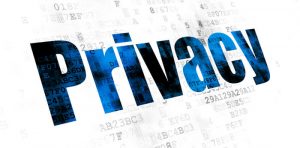Does ExpressVPN Keep Logs in 2020?
ExpressVPN claims to be “the most anonymous VPN service,” and you would expect no less from one of the best VPNs. However, company statements are meaningless if internal policies and practices don’t support them. In this article, we will be looking into ExpressVPN’s privacy policy to find out what information it stores.
Although some logs are necessary — companies need to save your account information somewhere — ExpressVPN holds on to the bare minimum. Its no-logs policy explicitly states that it does not store any IP addresses, browsing history or DNS queries.
Throughout our many years of updating our ExpressVPN review, we have never had a report that claimed this service was keeping activity or connection logs. There are also no known leaks, which is nice, even if there isn’t much data at risk.
ExpressVPN’s Privacy Policy

Privacy policies are legally binding documents that describe how a company can use its customers’ data, such as tracking your activity or creating connection logs. ExpressVPN’s privacy policy is more straightforward than most but is still difficult to read, so the company provides a brief opening paragraph outlining the data it doesn’t collect.
There is also a link to an independent audit by PricewaterhouseCoopers. This is a lengthy report, but it confirms that ExpressVPN is following its policy. More detail about the “trusted server” software is also available within this document, to increase transparency around how it keeps your data safe.
The Logs Kept by ExpressVPN
Although ExpressVPN isn’t logging your activity, it is collecting some data. It gathers four types of information: account information, VPN connection statistics, diagnostic data and IP addresses. These last two are both optional or situational, so you can choose to hide them.
“Account information” is fairly self-explanatory; it’s the personal information that you used for your initial purchase. This is your name, email address and payment information, which are only used by ExpressVPN for accessing your account.
The “VPN connection statistics” is where another company might hide its data collection, but ExpressVPN doesn’t gather much information. Specifically, it logs only the days you successfully connected to a VPN server, the amount of data transferred and the countries between which the data moved.
ExpressVPN overlaps your VPN traffic with other users on the same VPN servers, so even with these logs, no specific browsing activity can be linked to your account. The reason it collects this data is to ensure no one is overloading the network and to find out if more servers are needed before bandwidth limitations start to slow everyone’s connections.
“Diagnostics data” is the third category of logs. This is completely optional and is turned off by default because, with it on, some relevant third parties will receive crash reports. Companies like Microsoft and Sentry allow ExpressVPN to track and fix crashes, but the privacy and security policies of these companies may not be as robust.
“Support logs” are also held and shared with Zendesk and SnapEngage. Only your messages are stored, unless you choose to share the diagnostics data, which would help troubleshoot issues faster and build a better customer support system.
The last piece of user information kept is your IP address, but only if you are using its MediaStreamer. Any device — usually a Smart TV or a console — that doesn’t allow VPN apps needs to be set up on a computer using its IP address. This information isn’t collected automatically, and you can use a VPN router to avoid revealing your IP address.
ExpressVPN’s Headquarters

Although ExpressVPN doesn’t store any connection logs, it is still important to ensure that governments can’t access your data. To protect your private data, this service’s headquarters are in the British Virgin Islands, which has some of the best privacy laws.
The BVI has no specific data retention laws, but it does use British common law to aid judicial decisions. One of these rulings means that companies have to take reasonable steps to protect your privacy. Although this isn’t legally binding, it does mean ExpressVPN can’t use your data irresponsibly.
Another protection provided by the BVI government is the “dual criminality” provision. This means law enforcement and foreign courts can’t demand the release of data unless the BVI Supreme Court requires it as evidence for a crime. However, information that isn’t stored can’t be requested, so most of your data is still protected.
Does ExpressVPN Keep Logs?
ExpressVPN is an incredible VPN provider, and it doesn’t shirk its duties when it comes to privacy. It doesn’t store any activity logs and doesn’t sacrifice user privacy, even if that means it comes with a higher price tag than some alternatives with weaker privacy policies.
Although providers like Mullvad don’t store any logs — even account information — ExpressVPN does provide some extra benefits. So if you want to torrent with ExpressVPN, or you’re looking for a private VPN to do anything from watching Netflix to avoiding government surveillance, ExpressVPN is worth trying out (read our guide on how to use ExpressVPN in China).
What do you think of ExpressVPN’s privacy policy? Let us know your thoughts in the comments below. Thanks for reading.


 With a handful of A-levels completed, Robin followed his passions for learning and informing others, finding a place among the CommQueR.com team. Between writing about software and creating fantasy worlds, he’s either losing games of Civilisation or darting about the UK in search of inspiring views and learning about each area’s history.
With a handful of A-levels completed, Robin followed his passions for learning and informing others, finding a place among the CommQueR.com team. Between writing about software and creating fantasy worlds, he’s either losing games of Civilisation or darting about the UK in search of inspiring views and learning about each area’s history.